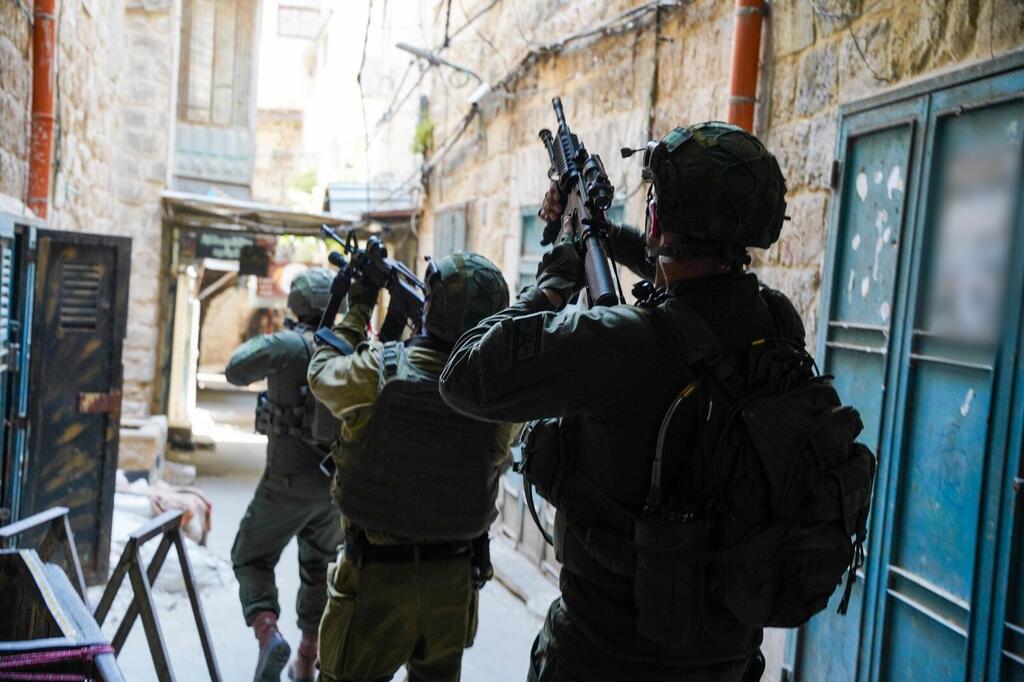Col. A, chief officer of the Engineering Corps in the IDF Central Command, spoke as he resigned after three years in his post, emphasizing the boldness required to achieve success. “To win, you must dare. When you stagnate and fear your own shadow, bad things happen,” he said. “Today, we are taking unprecedented action, never before attempted.”
IDF forces in the northern West Bank
(Photo: IDF Spokesperson’s Unit)
The military operation, launched last January in several West Bank refugee camps known as terror hubs, aimed to transform these areas into “thriving neighborhoods,” Col. A explained.
“We ended the dark cloud hovering over the Tulkarm, Jenin and Nablus camps,” he said. “We destroyed 260 buildings and created 11 kilometers (6.8 miles) of open roads. This was not demolition for its own sake but to maintain freedom of operation.”
During the campaign, IDF forces uncovered 20 explosive laboratories and command and intelligence centers. The camps had been deliberately constructed to block vehicle access, complicating security efforts, the officer added.
A government decision has kept Israeli forces in the camps at least through the end of this year. Following the extensive demolition, the military is now considering plans to rebuild infrastructure in the affected areas.
“The Palestinians were surprised by what we had done in the camps and even asked that we demolish some homes nearby,” Col. A said. “We are in dialogue with the Palestinian Authority and they understand we have not come to wipe out the camps.”
He said it is now up to the Palestinian Authority to restore water and electricity and eventually allow residents to return. “Their security services are pleased that the terrorists are no longer there,” he added.







